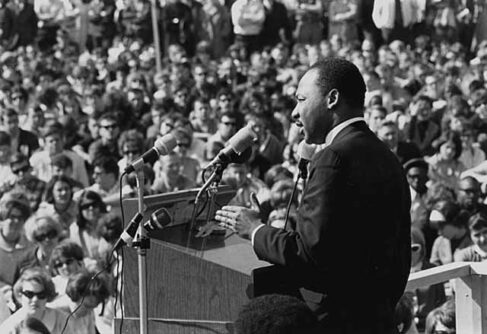To face our current multiple crises, it is more urgent than it has been in a generation to ensure that top minds are being encouraged to develop creative solutions to America’s problems. And yet, we are facing a crisis of innovative ideas to address these problems.
It is not that there are competing, even contradictory, policy proposals about how to face America’s challenges. That is a sign of healthy debate.
The crisis is that we urgently need a robust community of policy experts to develop, to debate, and to defend innovative policy proposals. Ideally, such a community should attract top minds, allow for diverse ideological viewpoints, and let scholars and policy experts from with different training and backgrounds work together on complex issues.
Unfortunately, we don’t have that sort of policy community. Hudson Institute senior fellow Tevi Troy, in a new essay in National Affairs, lays out some reasons why this is so.
As Troy notes, he problem certainly isn’t a lack of “experts.” The number of think tanks has risen from about forty-five just after World War II to 1,800 today; CNN, MSNBC, and Fox News, are able to present expert after expert all day long.
Indeed, on Troy’s account, part of the problem is the very proliferation of think tanks.
To make this case, Troy offers a brief history of think tanks. Early think tanks such as the Brookings Institution (established in 1916), the Hoover Institution (established 1919), the Council on Foreign Relations (established 1921) and the American Enterprise Association (established 1938, later renamed the American Enterprise Institute) produced academic policy studies to inform policymakers and legislators. Although these think tanks might have a conservative or liberal bent, they were non-partisan, included a range of viewpoints, and were home to highly educated academics. They were “universities without students” and frequently produced innovative proposals about how to confront political and social problems.
The very proliferation of think tanks during the post-World War II period led to their politicization. Each new think tank had to distinguish itself to prospective donors and media by “branding” itself as representative of a particular, narrow policy position. New, smaller think tanks had to appeal to donors interested in funding pet projects rather than in funding open-ended exploration of policy questions. And, the opening of so many think tanks meant that many were not staffed by highly educated academics interested in conducting detailed policy analyses but by former administration staffers awaiting their next turn in government. All of these factors made the output of think tanks much more partisan and much less likely to include novel policy proposals. These trends culminated in the establishment of “do tanks” like the liberal Center for American Progress and the conservative American Action Fund that emphasize marketing policy proposals rather than developing them.
As Troy argues, the very proliferation of think tanks, along with the political bent of newer think tanks, has the effect of devaluing all policy work produced at think tanks:
This potential for devaluation poses a serious problem for the Washington policy process. There is nothing inherently wrong with the proliferation of think tanks and advocacy organizations intended to hone an existing line of thinking or advance better communication strategies; in an age of fast-paced politics and new media, such institutions surely play a useful role. But precisely in such an age, there is also a real need for original thinking that can break the mold of some familiar debates and propose plausible solutions to the enormous policy problems that now confront us. In other words, there is plenty of room for the new kind of think tank, but there is also plenty of need for the old kind as well. If the proliferation of “do tanks” makes traditional policy research—and even policy advocacy informed by original research—more difficult and less reliable, it stands to make the task before our policymakers far more challenging.
But if policymakers can’t rely as much on think tanks for innovative proposals, where else might they look? An answer might be universities.Alas, during the decades that think tanks have become less devoted to original policy research, universities have also become less devoted to original policy research as the political science and economics professions have come to prize methodological sophistication over policy relevance. Faculty members are now much more rewarded by their peers for methodologically sophisticated investigation of narrow, academic questions than for investigating policy questions with real-world applications.
Browsing the leading journals in economics and political science suggest how remote policy concerns are from today’s academe. Here are some articles titles, chosen almost at random, from the latest issues of American Economic Journal, American Journal of Political Science, and American Political Science Review: “Health Capital and the Prenatal Environment: The Effect of Ramadan Observance during Pregnancy,” “Social Networks as a Shortcut to Correct Voting,” and “Governance and Prison Gangs.” I haven’t any doubt that these articles are methodologically sophisticated analyses by very smart people (in fact, I am slightly acquainted with one of the authors and know him to be a very able fellow). However, these articles obviously don’t address today’s most urgent policy questions.
The decreased role of think tanks in public policy development that Troy discusses is compounded by the decreased interest of universities in public policy development. A half-century ago, both think tanks and universities were important sources of innovative policy proposals. Today, both think tanks and universities have diminished roles in informing public policy. We’re facing some of the most urgent domestic and international crises in a generation. Unfortunately, we’re also facing a crisis of ideas by which to face up to these challenges.





